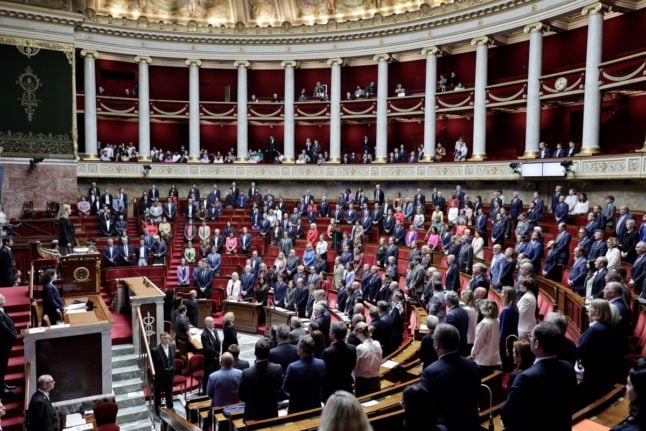Already Saturday about 350 of its members, some wearing masks and dressed in black, were able to attend a symposium in the capital, “France in danger”, after a court ruling overturned a ban issued by the authorities.
The gathering took place under heavy police surveillance, according to an AFP journalist.
“The execution of the police prefect’s order from May 12, 2023 is suspended,” said the Paris administrative court in a statement to AFP hours ahead of the symposium. The court however, rejected an appeal by Yvan Benedetti and his extreme far-right group The Nationalists, which has been banned from holding a rally at the same time Sunday.
Sunday’s gathering will honour Joan of Arc, who led the French to a famous victory over the English in the 15th century. She is revered by many of France’s far-right movements.
Police had issued several ban orders on Friday, after Interior Minister Gerald Darmanin issued directives aimed at prohibiting any gatherings “of the ultraright or extreme right”.
That came after the controversy generated by a far-right white supremacist rally that was allowed to go ahead last weekend.
But as opposition deputies pointed out, police had cleared that rally at a time when pan-bashing protests against President Emmanuel Macron over his unpopular pension reform have been repeatedly blocked.
Politicians and activists denounced what they said were the government’s double standards.
‘Tense context’
In issuing this weekend’s bans, Paris police chief Laurent Nunez had argued that the far-right gatherings were a threat to public order because of possible clashes with radical left activists staging counter-demonstrations.
He had cited a “particularly tense context” after “the controversy provoked by the demonstrations” the previous weekend in Paris.
In last weekend’s march, around 600 people — some in masks, which French law prohibits in public spaces — march to commemorate the death of a fellow activist, Sebastien Deyzieu, in 1994.
But Action Francaise and the Nationalists appealed this weekend’s bans on the grounds that they constituted a serious, unlawful infringement on their fundamental freedoms by the state.
According to Olivier Perceval, secretary general for Action Francaise, the rally paying homage to Joan of Arc has been only banned twice before: once by the Germans during the war, and a second time after the desecration of a Jewish cemetery in 1990.
The court, overturning the ban, noted that Sunday’s rally did not of itself constitute an incitement to public disorder and acknowledged that this was a longstanding event in the group’s calendar.
Paris police had banned six rallies in Paris over the weekend on public order grounds.
Among them was one by the Yellow Vests movement, which in 2018 and 2019 shook the Macron administration in a series of massive protests, before the Covid pandemic effectively shut down their activities.
Some of their activists defied the ban Saturday, Paris police told AFP. Officers broke up the gathering and fined 62 people, they added.
Even before this weekend’s legal reversal, Interior Minister Gerard Darmanin’s move to curtail far-right rallies had come in for criticism from some observers, who argued it was built on shaky legal grounds.



 Please whitelist us to continue reading.
Please whitelist us to continue reading.
Member comments